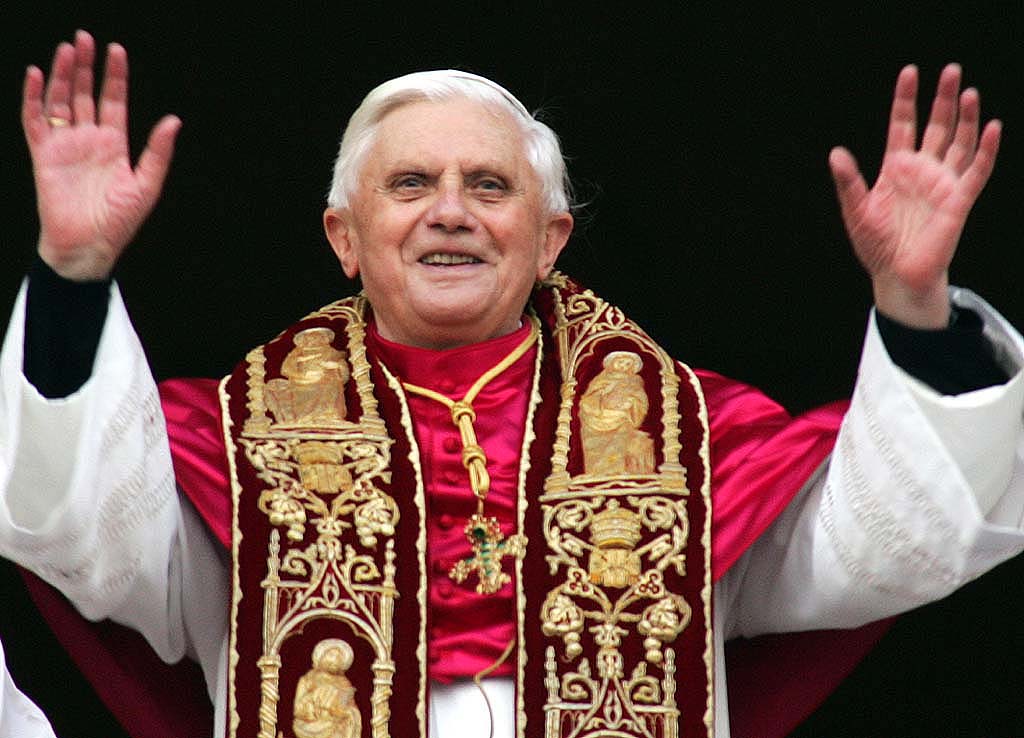

For many, the idea that the Pope would deem contraception morally acceptable is on par with pigs evolving the ability to fly. The front page of newspapers around the world trumped that last month as German journalist Peter Seewald, released an interview in which His Holiness admits the use of condoms can be justified in certain circumstances.
However, the reason we don’t see Babe soaring over Mohonk is that this isn’t the game changing announcement the media made it out to be.
The Vatican has always argued condoms as irrelevant. If you’re a good Christian and accept that the sole purpose of sex is procreation between a married couple, then condoms are unnecessary. Sounds fair in an ideal world. However, this is not an ideal world and critics, including some from within the Catholic Church itself, have condemned this view in the wake of the millions dying of HIV/AIDS every year.
But when recently questioned on this, in Seewald’s carefully orchestrated interview, Pope Benedict XVI said “[The Catholic Church] of course does not regard [the use of contraception] as a real or moral solution, but, in this or that case, there can be nonetheless, in the intention of reducing the risk of infection, a first step in a movement toward a different way, a more human way, of living sexuality.”
As the voice of God on Earth, the Pope’s words have mighty implications for the Catholic world.
“What the Pope is really saying is that in his view, everyone is so immoral nowadays that [contraception] could be the first step towards becoming more moral, instead of immediately taking the large jump [to becoming abstinent],” said first-year psychology major Nicole Devinney. “I don’t think a Pope can ever believe in the use of condoms, but it’s a necessary evil at this point in time to get Catholic society where it wants to be.”
As a panicked Vatican press office pointed out following the media frenzy, the Catholic standards remain very much the same.
Carlton Rounds, assistant director of the SUNY New Paltz Study Abroad program, doesn’t claim to be a religious scholar but he has witnessed firsthand the scale of the HIV epidemic in South Africa and remains philosophical.
“There’s a tremendous amount of stigma around HIV,” he said. “When I was in Cape Town I worked in a township called Gugulethu where there was so much government misinformation combined with illiteracy problems, drugs, death … every problem known to man. Out of this desperation it became a belief that if you were a man and you had sex with a virgin you could cure yourself of HIV. So there were girls as young as 10 being raped and becoming [HIV] positive. It’s not like these rapists were thinking, ‘I’m going to put on a condom first.’”
HIV remains the world’s fourth-largest killer but, with the addition of the disease’s social impact, Rounds doesn’t see a singular way of intervention from either side of the debate.
“There’s how the Vatican wants to see the world and what’s actually on the ground. The way I see it, the Pope’s concern is with the saving of souls, he’s not necessarily concerned with the saving of lives,” Rounds said. “He’s not a public health official; he’s the spiritual/political leader of the church. He doesn’t have public health training, that’s just not his gig. That’s not what he’s supposed to be.”
The Pope’s offer of salvation may be swelling congregations in Africa, South America and Asia, but the Catholic heartlands of the West are beginning to feel disillusioned and are shrinking in record numbers.
Fourth-year graphic design major and native Australian, Alison Tanudisastro, is typical of a growing trend of progressive Catholics who feel the Pope is losing touch.
“I don’t feel personally affected by what the Pope says,” said Tanudisastro. “I’m more of a cultural Catholic than a theological Catholic. He’s still a symbol of unity for us across the world but on a lot of issues he’s very out of touch.You can take it or leave it but for me the condom debate is about personal safety rather than idealism.”
